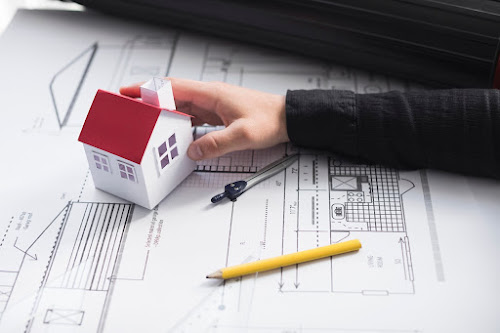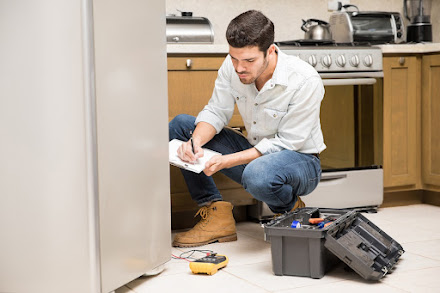The Essential Guide to Home Inspection Services
Introduction
Purchasing a home is likely the biggest investment you’ll ever make. Home inspections help buyers make informed decisions and avoid expensive surprises down the road. They provide an unbiased assessment of a property’s condition from an experienced professional. Home inspections are a standard part of real estate transactions. This guide covers the key things to know about home inspection services.
What is a Home Inspection?
A home inspection is a visual examination of a property's condition. Licensed inspectors evaluate the mechanical, electrical, structural, and other major systems. They look for signs of damage, wear and tear, code violations, and items needing repair or replacement. Inspections provide buyers objective information to make a wise purchasing decision. Sellers also benefit by learning which flaws may turn off potential buyers.
What Does an Inspector Check?
A standard home inspection is quite comprehensive. Inspectors examine:
· Foundation and structure – signs of settling, cracks, leaks, rot, insect damage, etc.
· Roof and attic – age, leaks, ventilation, rafters, sheathing
· Exterior – siding, windows, doors, decks, drainage, driveways, walkways
· Interior – walls, ceilings, floors, windows, doors, stairs railings
· Electrical – panel, wiring, outlets, switches, fixtures
· Plumbing – supply pipes, drains, faucets, water heater, fixtures
· HVAC – age, output, ducts, filters, thermostats, insulation
· Appliances – water, gas, and electric hookups, age, overall function
In short, they examine everything that makes a house livable. Inspectors use tools like moisture meters, outlet testers, and flashlights. They also check documentation like permits and repair records.
What Isn’t Covered in a Home Inspection?
Home inspections have limitations. Most do not evaluate:
· Asbestos, lead paint, radon, mold, pests – require specific tests
· Low-voltage systems – phone, cable, audio, security, landscape lighting
· Private sewage systems – additional inspection required
· Pools, hot tubs, detached structures – additional fees may apply
· Code compliance – done by municipalities
· Condition of buried pipes or concealed electrical – requires invasive testing
If any exclusions are a concern, arrange for separate specialty inspections.
When Should a Home Inspection Occur?
For buyers, inspections normally occur after an accepted offer, as a contingency. This avoids unnecessary expense if the deal falls through.
For sellers, pre-listing inspections can identify issues upfront so repairs can be made before showings start. Sellers can also stipulate that offers are contingent on a buyer’s inspection, to avoid renegotiation.
In all cases, inspections should happen before closing. Repairs found necessary should be completed and re-inspected when possible.
How to Choose a Home Inspecto
There are no federal regulations for home inspectors, so do your homework. Look for:
· Licensure – Google “[your state] home inspector license” to check credentials
· Membership – National home inspector associations require ongoing education
· Experience – Seek 5+ years inspecting, 100+ inspections completed
· Specializations – Old homes, green construction, etc.
· References – Past clients can describe their experience
· Sample reports – Review for thoroughness and professionalism
· Cost – Prices vary based on size, age, location of home
Avoid recommendations from real estate agents. Opt for a third-party neutral inspector without ties to agents or sellers.
What to Expect During the Inspection
On the day of inspection, buyers normally attend so they can see issues first-hand and ask questions. The process takes 2-3 hours for a typical single-family home, including:
· Exterior assessment – inspector circles the entire home looking at roof, walls, foundation, drainage, etc.
· Interior assessment – inspector views each room, operating doors, windows, outlets, appliances, plumbing and electrical. Attic and crawl spaces are checked.
· Systems testing – HVAC, appliances, garbage disposal, smoke detectors, security system, etc. are turned on to confirm functionality.
· Review findings – inspector summarizes issues discovered and may provide repair cost estimates. Photos or thermal imaging supplements the report.
After the inspection, buyers can request sellers make repairs prior to closing, negotiate credits or price reductions to complete repairs themselves, or terminate the deal based on deficiencies found.
What to Look for in an Inspection Report
A professional home inspection report should:
· Be emailed within 24 hours of inspection – delays may indicate problems
· Start with an easy-to-read summary page highlighting major findings
· Use text and photos to document each issue – makes it clear for buyers
· Provide repair recommendations and cost estimates
· Note any systems not inspected and why – e.g. inaccessible crawl space
· Use consistent, neutral language – no salesmanship if issues arise
A quality report helps buyers make sound decisions and provides a baseline to negotiate repairs with sellers.
Bottom Line
Home inspections provide objective, unbiased assessments of a property’s condition. They help buyers reduce risk and make wise investment decisions. For sellers, they identify flaws to be repaired to attract top dollar on the open market. Respecting the inspector’s role as a neutral third party makes the process go smoothly for all parties. With thousands of dollars at stake, investing a few hundred in a home inspection offers peace of mind. Read next home inspection blog




Comments
Post a Comment